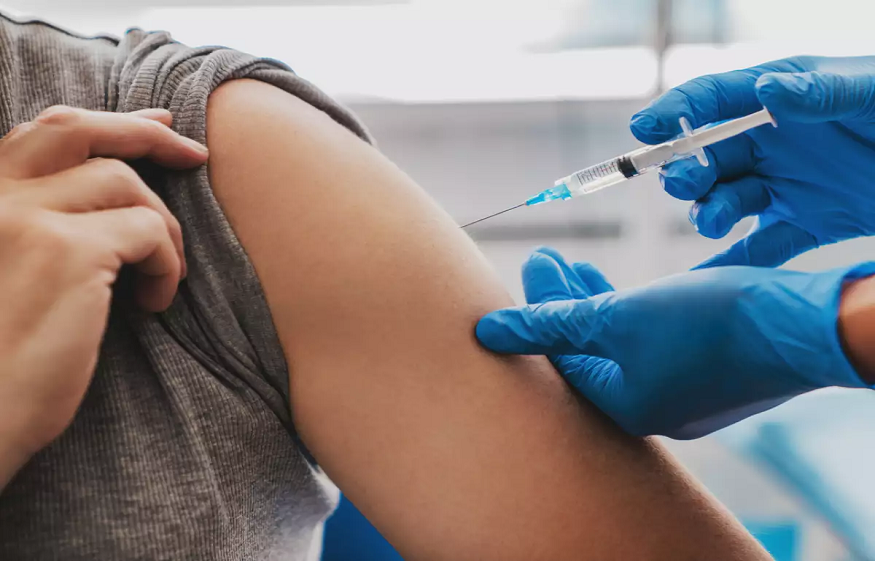As the world continues to grapple with the COVID-19 pandemic, vaccination has been identified as a key measure to curb the spread of the virus. However, like with any medication, vaccines come with potential side effects, and one of the most common is shoulder pain. Shoulder pain after a vaccine is a well-known phenomenon that can occur with various types of vaccines, including COVID-19, flu, and tetanus shots.
While the benefits of vaccination far outweigh the risks of side effects, it is important to understand the duration and severity of these side effects. In this article, we will discuss the question on many people’s minds: How long does shoulder pain after vaccination last?
By answering this question, we aim to equip people with the knowledge they need to manage their post-vaccination symptoms and make informed decisions about their health. So, let’s dive in and explore the duration of shoulder pain after vaccination.
What Causes Shoulder Pain After Vaccination?
Shoulder pain after vaccination is a common side effect when the vaccine is injected into the deltoid muscle in the upper arm. This type of pain is called injection site pain and is a normal reaction to the vaccine.
The injection process can cause minor tissue damage and inflammation, leading to soreness and tenderness. However, the severity of the pain can vary based on individual factors, such as age and overall health.
Additionally, certain types of vaccines can cause more severe shoulder pain than others. For example, the COVID-19 vaccine has been associated with a higher incidence of shoulder pain than other vaccines. This is because the COVID-19 vaccine is administered into the muscle rather than the subcutaneous tissue (the layer of tissue beneath the skin), making it more likely to cause injection site reactions.
In rare cases, shoulder pain after vaccination can be caused by a more serious condition known as shoulder injury related to vaccine administration (SIRVA). SIRVA occurs when the vaccine is injected into the bursa or joint space, resulting in a more severe inflammatory reaction that affects the shoulder joint. This can lead to prolonged and debilitating shoulder pain that requires medical attention.
Duration of Shoulder Pain After Vaccination
The duration of shoulder pain after vaccination can vary depending on several factors, including the type of vaccine administered and individual factors like age and overall health. Generally, the duration of shoulder pain after vaccination is relatively short-lived, lasting for a few days to a week.
Most vaccines’ pain and discomfort at the injection site are expected to peak within the first one to two days after vaccination and gradually improve over the next few days. After this time, the pain should subside completely, and you should be able to resume your normal activities.
However, the COVID-19 vaccine may cause more prolonged and intense shoulder pain than other vaccines. According to the Centers for Disease Control and Prevention (CDC), some individuals may experience arm pain lasting up to a week after receiving the vaccine. However, this is still considered a normal reaction to the vaccine and is not a cause for concern unless accompanied by other concerning symptoms.
Factors that Affect the Duration of Shoulder Pain After Vaccination
Several factors can influence the duration of shoulder pain after vaccination. These factors can include age, gender, overall health, physical activity, and usage of the affected arm.
- Age: Older adults may experience longer-lasting pain due to reduced muscle mass and slower tissue healing. Younger adults may experience shorter durations of pain due to their generally healthier immune systems.
- Gender: Studies have shown that women are more likely to experience shoulder pain after vaccination than men, although the reasons for this are not fully understood.
- Overall health: Individuals with chronic health conditions or weakened immune systems may experience more prolonged or severe shoulder pain after vaccination.
- Physical activity: Individuals who engage in regular physical activity may experience more intense and longer-lasting pain due to increased muscle use in the affected arm. It is recommended to avoid strenuous activity for a few days after vaccination to minimize the duration of pain.
- Usage of the affected arm: Using the affected arm excessively or engaging in repetitive movements, such as carrying heavy bags or lifting weights, can prolong shoulder pain after vaccination.
Conclusion
Shoulder pain after a vaccine is a common and usually mild side effect. The duration of pain can vary depending on several factors, including the type of vaccine administered and individual factors like age and overall health. It is important to remember that severe or persistent pain may be a sign of a more serious condition and should be evaluated by a healthcare provider. If you experience any concerning symptoms, it is important to seek medical attention.
If you have experienced shoulder pain after vaccination and are seeking legal advice, Vaccine Law is a company that specializes in representing individuals who have been injured due to vaccines. Their team of experienced attorneys can help you understand your legal rights and pursue compensation for any damages you may have suffered. To learn more about Vaccine Law and its services, visit their website or contact them directly for a consultation.






